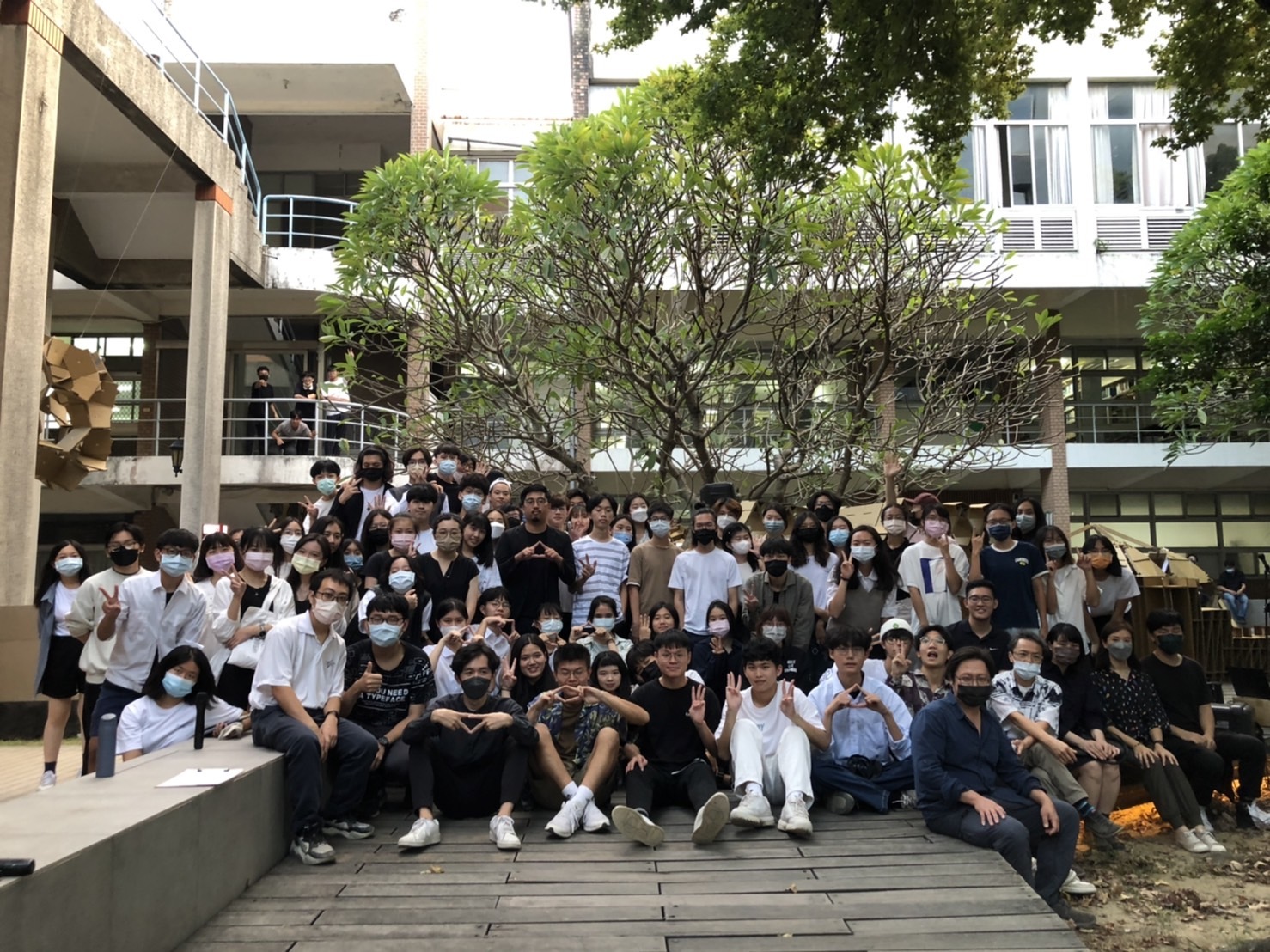National Cheng Kung University (NCKU) offered a new modular general education course titled “Art for Sustainability: Exploring SDGs and the Path to Net-Zero Carbon Emission” in the first semester of the 2024–25 academic year. The course was held from July 8 to 11 at the Museum of History, Kuang-Fu Campus, and combined themes of artistic creation, biodiversity, digital technology, and net-zero carbon emissions. Through hands-on interdisciplinary learning, the course invited students to explore new possibilities for coexistence between humanity and the natural world. On July 11, students presented their final projects in an exhibition performance that featured sustainable artworks created using industrial by-products such as slag, scrap metal, and AI-generated imagery. Through these diverse media and accompanying concept statements, students demonstrated how art and technology can work together to communicate the possibilities and directions of environmental sustainability.
The course was co-designed and taught by Professor Yen-Hsun Su (Department of Materials Science and Engineering), Associate Professor Wei-Sheng Chen (Department of Resources Engineering), and Associate Professor Wei-Chien Ma (the Institute of Art Studies and the Master Academic Program in Drama). It also invited external professionals including Dr. Ju-Wen Chen, Dr. Jun-An Chen, and Dr. Wei-Ling Yu from the National Taiwan College of Performing Arts, as well as Li-Ping Hsu, Director of the Department of Digital Marketing and Cross-Border Commerce at Lunghwa University of Science and Technology. With a strong emphasis on practice-based learning and technological integration, the course guided students to reimagine the value of waste resources and ecological preservation through material studies, artistic media, and creative expression.
Students were encouraged to recycle industrial by-products such as slag to produce artwork with both aesthetic and conceptual value. This hands-on experience aligned closely with the principles of the circular economy and served as a tangible response to the UN Sustainable Development Goals (SDGs), particularly in areas such as Climate Action and Responsible Consumption and Production. The course also incorporated AI-generated art, futures design thinking, and biodiversity observation, prompting students to reflect on the changing natural environment and to envision the future of sustainable societies.
Professor Yen-Hsun Su from the Department of Materials Science and Engineering remarked, “This course is not just about art — it’s a platform for the practical convergence of sustainability, technology, and culture.” He emphasized how the integration of materials science and artistic sustainability allowed students to reconsider the intricate relationships between human activity, technology, and the environment.
Associate Professor Wei-Chien Ma, coordinator of NCKU’s Master Academic Program in Drama, noted that the course also aligned with the Teaching Development Community for Faculty, particularly the “Green Creativity: Cross-disciplinary Teaching Community on AI, Biodiversity, and Regenerative Art” initiative. She commented, “By combining performance arts with visions of a sustainable future, the course not only fosters teaching innovation and resource sharing but also allows students to engage in collaborative, interdisciplinary learning experiences.”
As part of the course, students also participated in off-campus field studies at NCKU’s Sustainable Environment Experimental Site in Annan Campus. According to Associate Professor Wei-Sheng Chen, students learned about real-world challenges in managing waste liquids, acids, and alkalis, and later transformed these insights into artistic inspiration that bridged sustainability and creativity.
By continuing to promote interdisciplinary teaching and sustainable development, NCKU aims to cultivate a new generation of globally-minded citizens equipped with sustainability literacy and hands-on skills. Courses like this — which merge art, science, and digital innovation — serve as vital platforms for reimagining a future where humans and nature coexist in harmony.
The course was co-designed and taught by Professor Yen-Hsun Su (Department of Materials Science and Engineering), Associate Professor Wei-Sheng Chen (Department of Resources Engineering), and Associate Professor Wei-Chien Ma (the Institute of Art Studies and the Master Academic Program in Drama). It also invited external professionals including Dr. Ju-Wen Chen, Dr. Jun-An Chen, and Dr. Wei-Ling Yu from the National Taiwan College of Performing Arts, as well as Li-Ping Hsu, Director of the Department of Digital Marketing and Cross-Border Commerce at Lunghwa University of Science and Technology. With a strong emphasis on practice-based learning and technological integration, the course guided students to reimagine the value of waste resources and ecological preservation through material studies, artistic media, and creative expression.
Students were encouraged to recycle industrial by-products such as slag to produce artwork with both aesthetic and conceptual value. This hands-on experience aligned closely with the principles of the circular economy and served as a tangible response to the UN Sustainable Development Goals (SDGs), particularly in areas such as Climate Action and Responsible Consumption and Production. The course also incorporated AI-generated art, futures design thinking, and biodiversity observation, prompting students to reflect on the changing natural environment and to envision the future of sustainable societies.
Professor Yen-Hsun Su from the Department of Materials Science and Engineering remarked, “This course is not just about art — it’s a platform for the practical convergence of sustainability, technology, and culture.” He emphasized how the integration of materials science and artistic sustainability allowed students to reconsider the intricate relationships between human activity, technology, and the environment.
Associate Professor Wei-Chien Ma, coordinator of NCKU’s Master Academic Program in Drama, noted that the course also aligned with the Teaching Development Community for Faculty, particularly the “Green Creativity: Cross-disciplinary Teaching Community on AI, Biodiversity, and Regenerative Art” initiative. She commented, “By combining performance arts with visions of a sustainable future, the course not only fosters teaching innovation and resource sharing but also allows students to engage in collaborative, interdisciplinary learning experiences.”
As part of the course, students also participated in off-campus field studies at NCKU’s Sustainable Environment Experimental Site in Annan Campus. According to Associate Professor Wei-Sheng Chen, students learned about real-world challenges in managing waste liquids, acids, and alkalis, and later transformed these insights into artistic inspiration that bridged sustainability and creativity.
By continuing to promote interdisciplinary teaching and sustainable development, NCKU aims to cultivate a new generation of globally-minded citizens equipped with sustainability literacy and hands-on skills. Courses like this — which merge art, science, and digital innovation — serve as vital platforms for reimagining a future where humans and nature coexist in harmony.
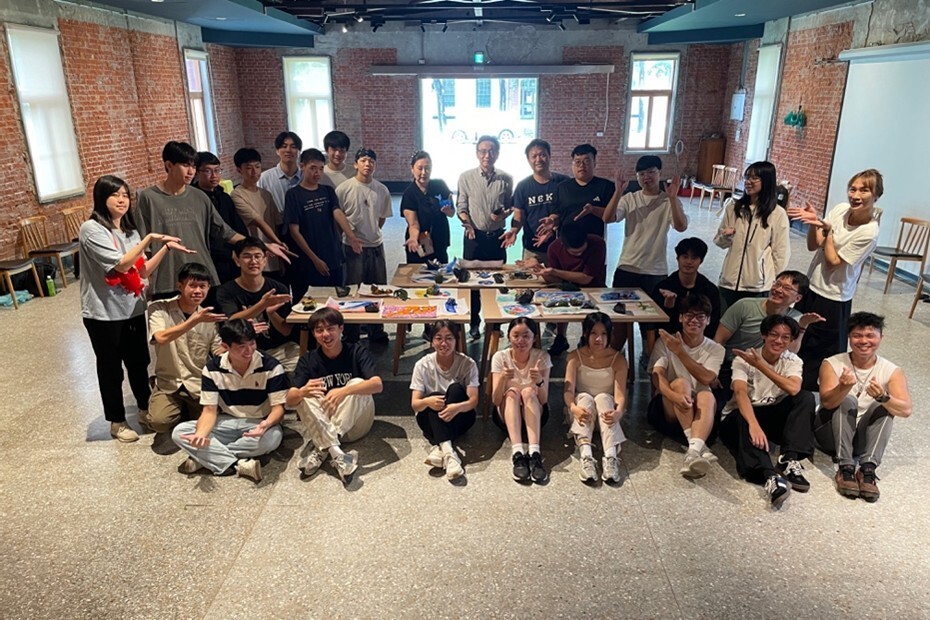
Group photo of participants from the course “Art for Sustainability: Exploring SDGs and the Path to Net-Zero Carbon Emission.”
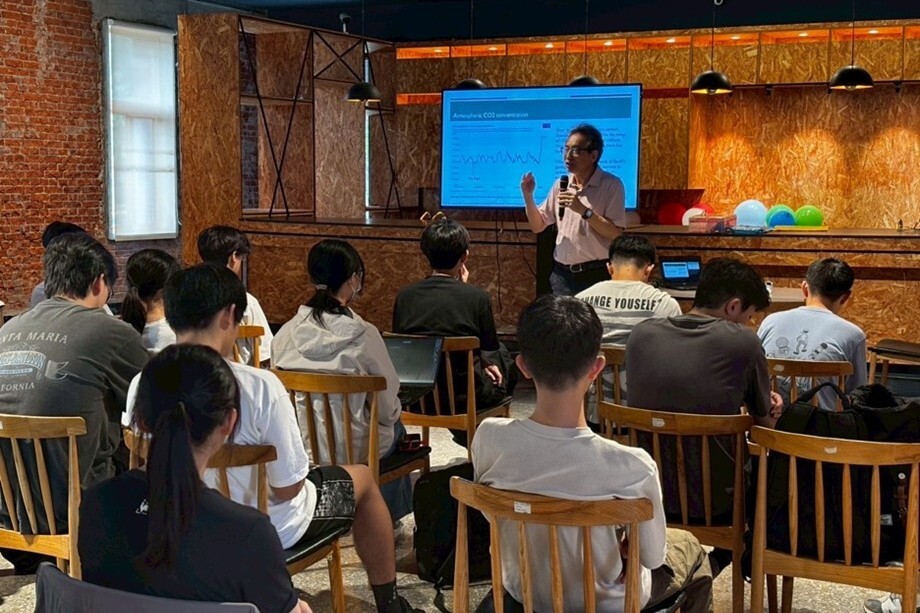
Class photo of Associate Professor Wei-Sheng Chen during his lecture.
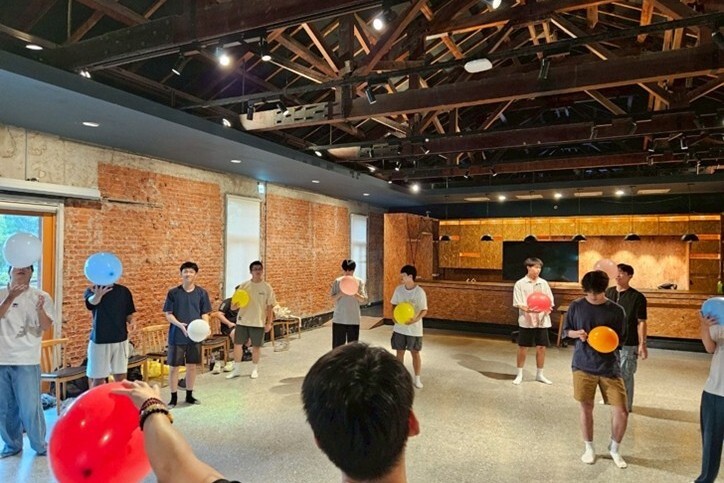
Students participating in a physical expression workshop.
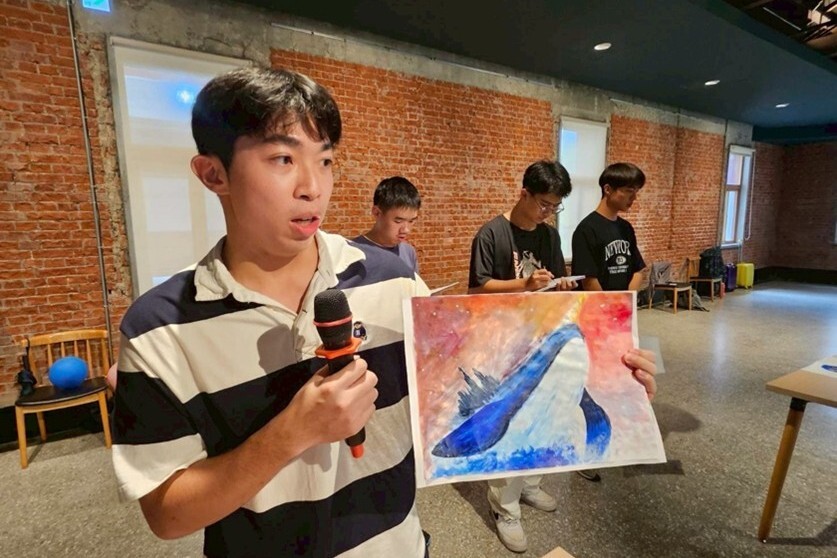
Students presenting their creative works.
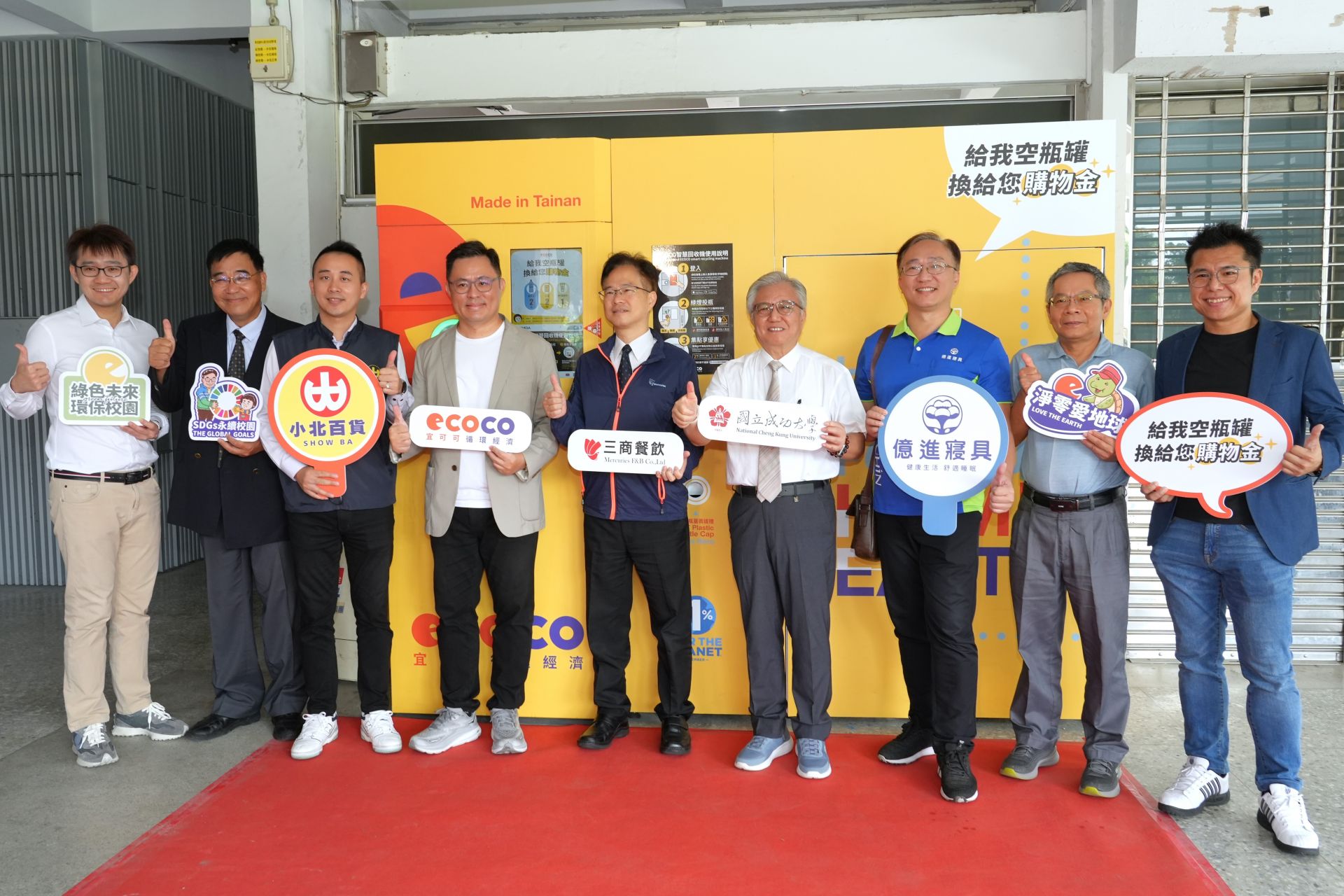
SDG12NCKU has partnered with San Shang Catering to adopt and install ECOCO smart recycling machines on campus
View more
SDG12NCKU Architecture Student Work Forest of Drifting Lights Wins Gold at the 2025 Sustainable Lighting Creative Exhibition
View more